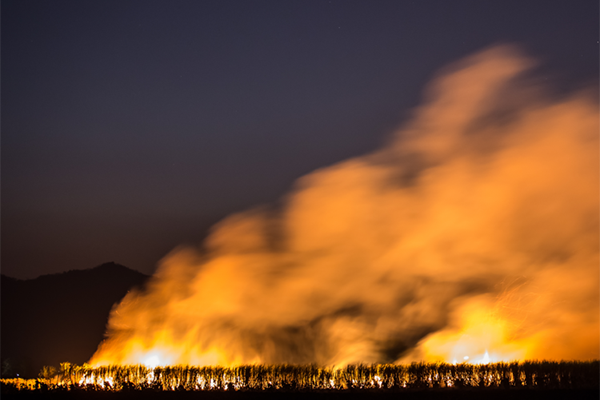
Climate and Health: What can we do today? Session III
How can data from both the micro (neighborhood and community) level and the macro (national, global) level be used effectively to inform and motivate policy change?


Register
Course Information
- Audience: Public Health Professionals
- Format: Recorded Webinar
- Date/Time: Friday, March 18th, 2022 12:00 PM – 1:00 PM EST
- Price: Free
- Length: 1 hour
- Credential(s) eligible for contact hours: Sponsored by New England Public Health Training Center (NEPHTC), a designated provider of continuing education contact hours (CECH) in health education by the National Commission for Health Education Credentialing, Inc. This program is designated for Certified Health Education Specialists (CHES) and/or Master Certified Health Education Specialists (MCHES) to receive up to 1 total Category I continuing education contact hours. Maximum advanced-level continuing education contact hours are 0. Provider ID: 1131137 Event ID: SS1131137_CH3.If you are not seeking a CHES/MCHES contact hours, if you complete the post-test and evaluation, you will receive a Certificate of Completion. The Certificate will include the length of the course.
- Competencies: Leadership and Systems Thinking
- Learning Level: Awareness
- Companion Trainings: Climate and Health: What can we do today? Session I Climate and Health: What can we do today? Session II
- Supplemental materials:None
- Pre-requisites: None
About this Recording
Recent heat waves, wildfires, hurricanes, and other extreme weather events around the world underscore that climate change represents a clear and present danger. Communities everywhere need to better prepare for the extreme weather events we are experiencing today. But how does a community do this?
What you'll learn
At the end of the recording, participants will be able to:
- Describe the creation of large national data platforms by combining health data, socioeconomic data, and climate change-related exposure data
- Discuss the methodological issues in assessing the impact of climate-change exposures and health using large heterogeneous sources of data
- Discuss evidence of climate change-related exposures and adverse health effects from 3 recent epidemiological studies using large national data sets
Moderator

Patrick Kinney
@PATRICKKINNEY20
Professor, Environmental Health, Boston University School of Public Health

@FRANCESCADOMIN8
Clarence James Gamble Professor of Biostatistics, Population and Data Science Initiative, Harvard T.H. Chan School of Public Health
Dr. Kinney joined the School of Public Health faculty in January 2017 as the inaugural Beverly Brown Professor of Urban Health. He was trained as an air pollution epidemiologist at Harvard School of Public Health, and came to BU after two decades at the Columbia University Mailman School of Public Health. In his time at Columbia, he showed how warming temperatures make air pollution like urban smog worse, and more harmful to populations. He led the development of an integrated modeling system to predict the air pollution health effects of climate change into the future. Working at the intersection of climate change, health, and policy, Kinney has conducted research from the South Bronx to China to rapidly growing cities throughout Africa. At Columbia, he also created an interdisciplinary research and teaching program examining the potential impacts of climate change on health. At BU, Kinney is developing a new program that focuses on assessing the health benefits of urban climate action plans, via strategies to promote active transport, green infrastructure, and clean vehicles.
Subject Matter Expert
Francesca Dominici, PhD is the co-Director of the Harvard Data Science Initiative, at the Harvard University and the Clarence James Gamble Professor of Biostatistics, Population and Data Science at the Harvard T.H. Chan School of Public Health. She is an elected member of the National Academy of Medicine and of the International Society of Mathematical Statistics. She is an expert in causal inference, machine learning, Bayesian statistics. She leads an interdisciplinary group of scientists with the ultimate goal of addressing important questions in environmental health science, climate change, and biomedical science. Her productivity and contributions to the field have been remarkable. Dominici has provided the scientific community and policy makers with robust evidence on the adverse health effects of air pollution, noise pollution, and climate change. Her studies have directly and routinely impacted air quality policy. Dominici has published more than 220 peer-reviewed publications and was recognized in Thomson Reuter’s 2019 list of the most highly cited researchers–ranking in the top 1% of cited scientists in her field. Her work has been covered by the New York Times, Los Angeles Times, BBC, the Guardian, CNN, and NPR. In April 2020 she has been awarded the Karl E. Peace Award for Outstanding Statistical Contributions for the Betterment of Society by the American Statistical Association. Dominici is an advocate for the career advancement of women faculty. Her work on the Johns Hopkins University Committee on the Status of Women earned her the campus Diversity Recognition Award in 2009. At the T.H. Chan School of Public Health, she has led the Committee for the Advancement of Women Faculty.
Registration
Select the Enroll Me button below to register for this recording. If you have any trouble accessing the recording, contact support@nephtc.org.
Acknowledgement: This project is/was supported by the Health Resources and Services Administration (HRSA) of the U.S. Department of Health and Human Services (HHS) under grant number UB6HP31685 “Regional Public Health Training Center Program.” This information or content and conclusions are those of the author and should not be construed as the official position or policy of, nor should any endorsements be inferred by HRSA, HHS or the U.S. Government.

